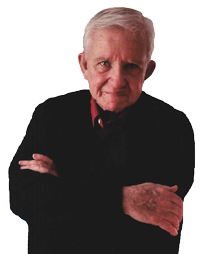
The cast and collaborators of Miss You Like Hell, Fonseca Theatre Company
I thought I would never feel again the kind of creative ferment that made New York in the Fifties so unique and exciting. It was centered in Greenwich Village, where Jose Quintero was directing “The Iceman Cometh” at The Circle in the Square Theatre. (I was sitting on an aisle when Jason Robards came past me to step on to the stage.) Those were the days when I met James Baldwin in The White Horse Tavern, a Columbia classmate introduced me to Jack Kerouac at Johnny Romero’s bar in an obscure Village alley, and I heard the great trombone player J.J. Johnson (from Indianapolis and Attucks) at The Village Vanguard.
Lorraine Hansberry met me for coffee at The Limelight on Sheridan Square to thank me for writing in her defense to a drama critic who said her hit Broadway play “A Raisin in the Sun” was “propaganda.” I quoted my Columbia professor Lionel Trilling, the literary critic, who had told us “All art is propaganda” and I added that Hansberry’s play was “propaganda for humanity and survival.”
That kind of “propaganda” – the propaganda of art for humanity and survival – is being produced here in Indy, now, at the new Fonseca Theatre. Bryan Fonseca, who founded The Phoenix Theatre has opened up a vital new theatre in Haughville, on West Michigan Street. I am proud to be one of the theatre’s “Collaborators” and I’ve seen two of their first slate of plays – “Hooded: Or, Being Black for Dummies” staged at the art space Indy Convergence, and “Lady Day at Emerson’s Bar and Grille” put on at The Linebacker bar for real authenticity. Each of these performances was riveting, memorable.
Their own theatre will open on West Michigan Street in the fall, and in the meantime they are staging a knockout drama called “Miss You Like Hell” that will open in a The Kinney Group warehouse at 2425 W. Michigan Street July 12 and run through July 26. As a “Collaborator” I was invited to the first read-through of the play at the small but productive “Hit City” studio of musician Tim Brickley on 54th Street, just around the corner from The Jazz Kitchen on College. Bryan Fonseca sat at the head of the table like a great Papa Bear tending his pack, the cast members arrayed around him. He made this work seem like the kind of adventure you always hoped to be included in, explaining how the use of the large space of the warehouse was an opportunity to create a more exciting kind of theatre experience, for the audience as well as the actors.
You could feel the cast members coming together in the spell of the opportunity, the chance to make something special. When the reading began and the actors playing the immigrant mother and the daughter born in the USA began to sing, I felt the kind of stirring of the blood that makes you know this is something special – it reminded me of Odetta at The Village Gate, of Geraldine Page in Tennessee Williams’ “Summer and Smoke” at The Circle in the Square, and listening to the aspiring opera singers putting on “Aida” to the music of a single piano at The Amato Opera House, a converted movie theater.
The other night I felt that spirit here – it’s a sense of communal excitement and commitment, the spirit of doing something meaningful in the arts, not just “art or art’s sake” but for the kind of “propaganda” I felt in Lorraine Hansberry’s “A Raisin in the Sun” – “propaganda for humanity and survival.”
Tickets for Miss You Like Hell are on sale now. Tickets are $25 for regular admission, $20 for 21 and under, and $15 for Near West residents. Performances are held Fridays at 8pm, Saturdays at 4pm and 8pm, and Sundays at 2pm.
Tickets for Miss You Like Hell and Flex Passes can be purchased by visiting https://fonsecatheatre.org/buy-tickets/ or by contacting our Associate Producing Director Jordan Flores Schwartz by email at jschwartz@fonsecatheatre.org or by phone at 678-939-2974.

